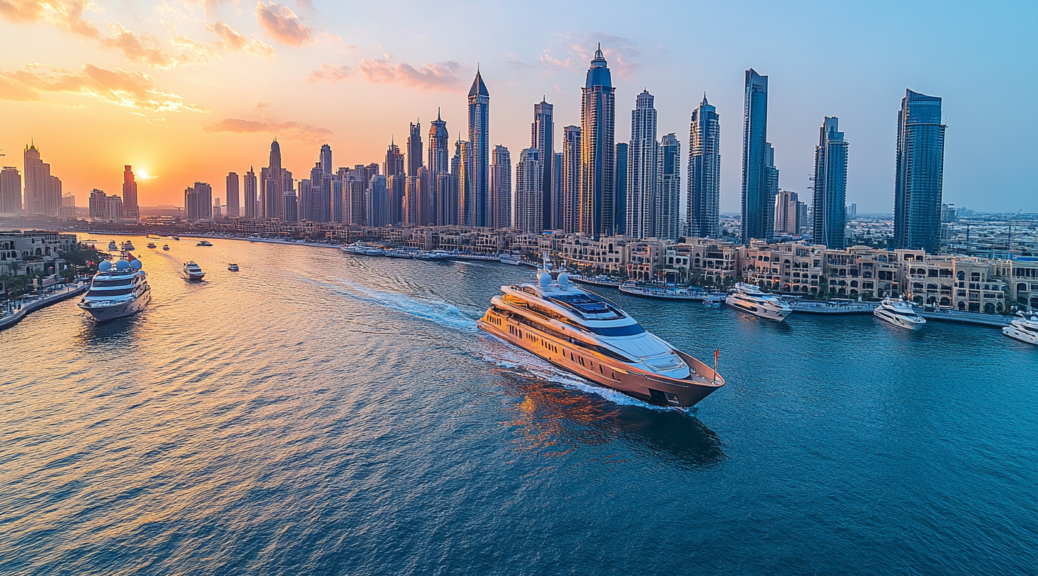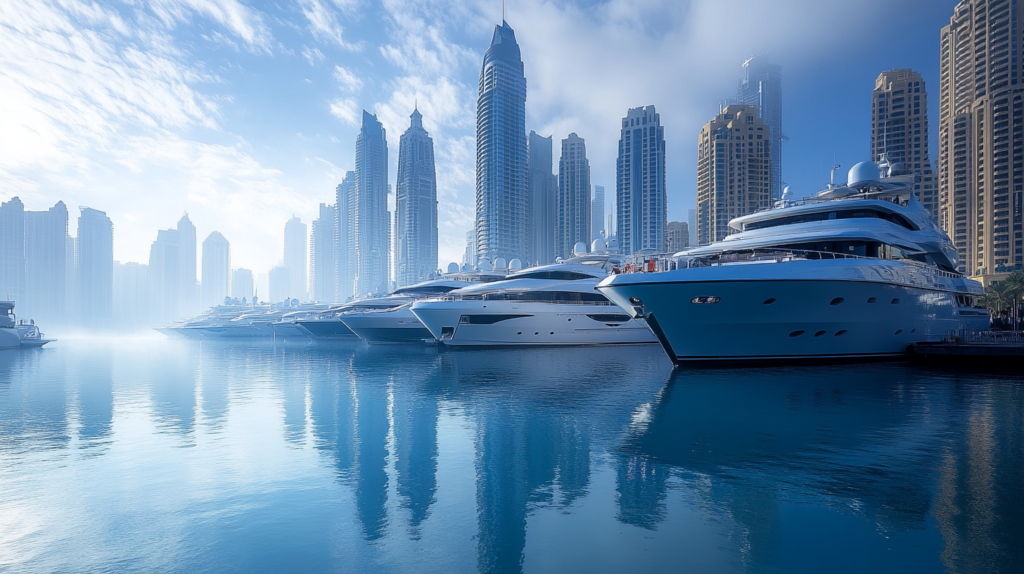
Strategic Insights: Real Estate Trends in Dubai for Future Entrepreneurs
Dubai’s dynamic real estate landscape continues to evolve at an unprecedented pace, offering unique opportunities for savvy entrepreneurs and investors. The emirate’s property market has demonstrated remarkable resilience and innovation, particularly as interest in land in Dubai reaches new heights amid the city’s ambitious expansion plans. This comprehensive analysis delves into the transformative trends shaping Dubai’s real estate sector, providing strategic insights for entrepreneurs seeking to capitalize on emerging opportunities in one of the world’s most vibrant property markets.
Beyond the Burj: Emerging Property Hotspots Reshaping Dubai’s Skyline
The traditional focus on Downtown Dubai and Palm Jumeirah is giving way to emerging districts that promise substantial returns on investment. The Dubai South district, surrounding the Al Maktoum International Airport, has witnessed a remarkable 43% price appreciation in the past 18 months. This surge is driven by the district’s strategic location and the government’s commitment to developing a self-sustained aerotropolis.
Mohammed Bin Rashid City, another rapidly developing area, has attracted over AED 12 billion in investments during 2024 alone. The district’s innovative urban planning approach, incorporating extensive green spaces and smart city technologies, has resulted in property values appreciating at an average of 15% annually, outperforming many established neighborhoods.
Dubai Maritime City represents an untapped opportunity, with its specialized maritime infrastructure and proximity to Port Rashid. Recent developments have seen property prices in this district increase by 28% year-over-year, driven by growing demand from maritime industry professionals and investors seeking diversification.
The emergence of Dubai Hills Estate as a luxury residential destination has redefined suburban living in the emirate. With average property prices reaching AED 1,800 per square foot, the area has demonstrated consistent growth, supported by its world-class amenities and strategic location between Downtown Dubai and Dubai Marina.
Digital Transformation: PropTech Revolution in Dubai’s Real Estate
Dubai’s real estate sector is experiencing a technological renaissance, with PropTech innovations fundamentally altering how properties are bought, sold, and managed. The Dubai Land Department’s implementation of blockchain technology for property transactions has reduced processing times by 67% and decreased transaction costs by approximately 35%.
Virtual and augmented reality technologies are revolutionizing property viewings, with 78% of Dubai’s leading real estate agencies now offering immersive virtual tours. This digital transformation has resulted in a 42% increase in international property transactions, as overseas investors can make informed decisions without physical site visits.
Smart building management systems, incorporating IoT sensors and AI-driven analytics, are becoming standard in new developments. Properties equipped with these technologies command a premium of 12-15% compared to traditional buildings, reflecting growing demand for sustainable and technologically advanced real estate solutions.
The integration of big data analytics in property valuation and market analysis has enhanced decision-making precision. Real estate firms utilizing advanced analytics platforms report a 28% improvement in pricing accuracy and a 45% reduction in time-to-market for new properties.

Sustainable Development: The Green Revolution in Desert Real Estate
Dubai’s commitment to sustainability is reshaping real estate development paradigms. The Dubai Sustainable City project has demonstrated that green buildings can achieve 40% lower energy consumption and 30% reduced water usage compared to conventional developments, while maintaining premium property values.
Recent regulations requiring all new buildings to meet minimum sustainability standards have spurred innovation in construction techniques. Properties incorporating sustainable features command a price premium of 8-12% and experience 25% faster occupancy rates compared to conventional buildings.
The implementation of solar power initiatives in residential developments has reduced energy costs by an average of 45% for property owners. This sustainability focus has attracted environmentally conscious investors, with green-certified properties experiencing 20% higher appreciation rates over the past two years.
Water conservation technologies and greywater recycling systems have become mandatory in new developments, reducing water consumption by up to 35%. These initiatives have resulted in lower operational costs and increased property values, with sustainable developments reporting occupancy rates 15% higher than conventional properties.
Investment Dynamics: Alternative Financing Models and Market Evolution
The introduction of Real Estate Investment Trusts (REITs) has democratized property investment in Dubai, with the market capitalization of Dubai-listed REITs reaching AED 8.5 billion in 2024. This investment vehicle has opened new opportunities for smaller investors, with minimum investment thresholds as low as AED 500,000.
Crowdfunding platforms specialized in real estate have gained traction, facilitating investments totaling AED 2.1 billion in 2024. These platforms have enabled fractional ownership of premium properties, with average returns of 8-12% annually.
Islamic financing options have expanded, with Shariah-compliant real estate investments growing by 35% annually. This growth has attracted significant capital from Gulf Cooperation Council (GCC) countries, with Saudi Arabian investors alone contributing AED 7.2 billion to Dubai’s property market in 2024.
The emergence of property technology startups has introduced innovative financing models, including rent-to-own schemes and flexible payment plans. These initiatives have expanded market accessibility, with 45% of new property purchases utilizing alternative financing arrangements.
Market Intelligence: Data-Driven Decision Making in Dubai Real Estate
Advanced market analytics platforms have revolutionized investment strategies in Dubai’s real estate sector. Property firms utilizing AI-driven market intelligence tools report a 35% improvement in investment performance compared to traditional analysis methods.
Predictive analytics models incorporating over 200 variables have achieved 89% accuracy in forecasting property price movements across Dubai’s various districts. This technological advancement has enabled investors to identify emerging opportunities before they become widely recognized.
Sentiment analysis of social media and news sources provides real-time insights into market trends, with companies utilizing these tools reporting a 40% increase in successful property transactions. The integration of machine learning algorithms has enhanced the accuracy of property valuations by 25%.
Geographic Information System (GIS) mapping combined with demographic data has revealed micro-market trends that traditional analysis might miss. This approach has helped investors achieve returns 15-20% above market averages by identifying undervalued areas with high growth potential.
Cross-Border Investment: Global Capital Flows and Market Internationalization
Dubai’s strategic position as a global business hub has attracted diverse international investment, with foreign direct investment in real estate reaching AED 38.5 billion in 2024. Chinese investors have emerged as the leading international buyers, accounting for 22% of foreign property purchases.
The establishment of specialized real estate investment zones has facilitated increased cross-border transactions, with processing times reduced by 65% through streamlined procedures. These zones have attracted AED 15.3 billion in international investment during the past 18 months.
European investors, particularly from the UK and Germany, have increased their Dubai real estate portfolios by 28% year-over-year, attracted by rental yields averaging 6-8% compared to 3-4% in their home markets. This trend has been supported by favorable exchange rates and expanded visa options for property investors.
The introduction of digital property registration systems has simplified cross-border transactions, resulting in a 55% increase in international property purchases conducted entirely online. This technological advancement has particularly benefited investors from Asia and North America, who now account for 35% of all foreign property investments in Dubai.